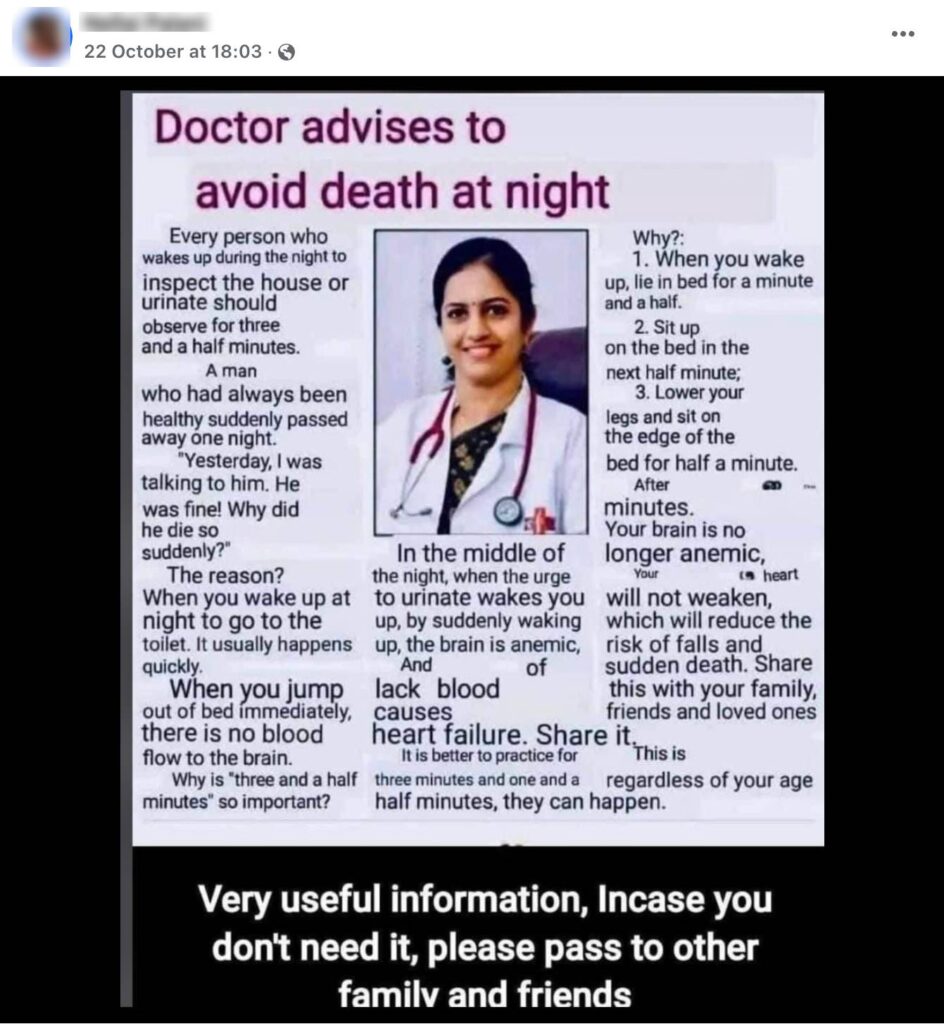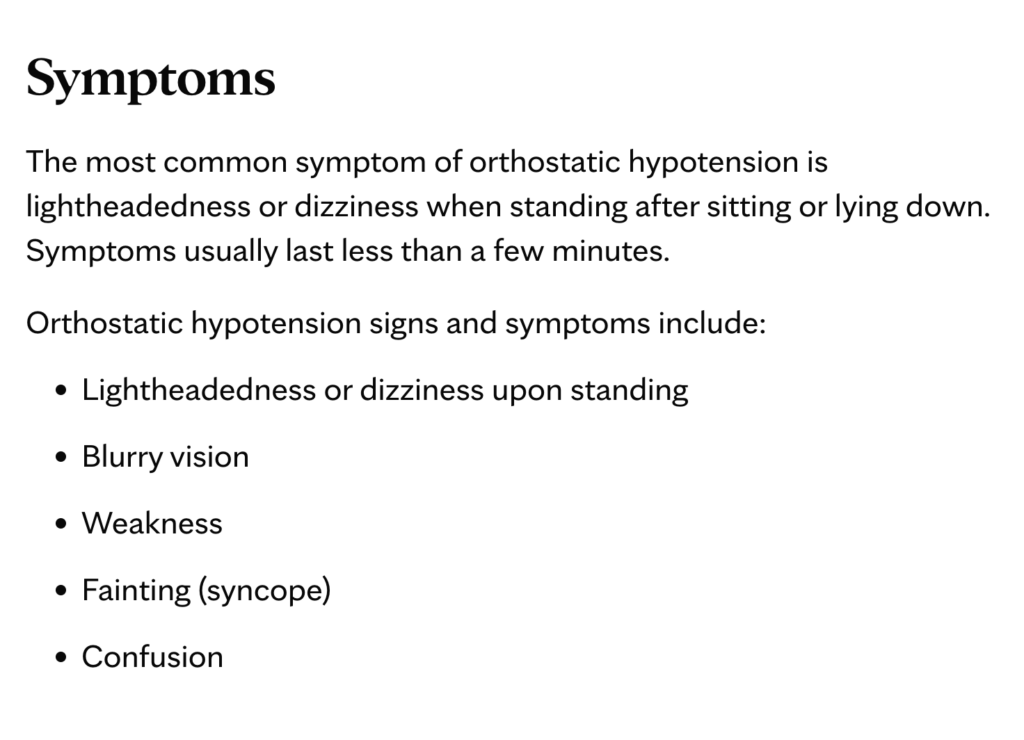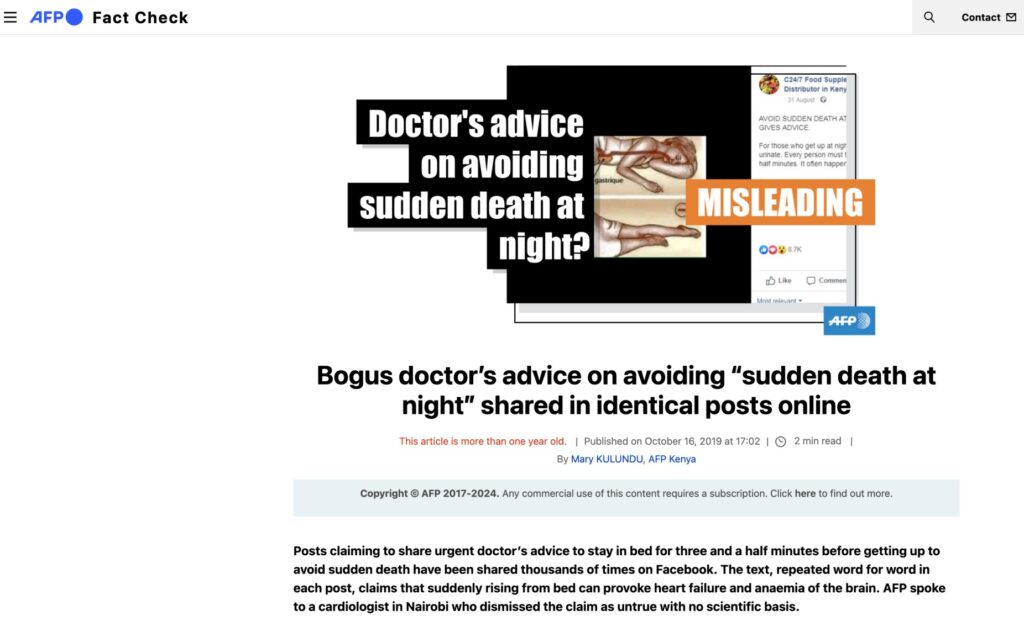A post going viral on social media (here, here, and here) shares an image that claims that many people die suddenly after waking up to use the washroom at night. It suggests a “three and a half minute rule”: stay in bed for half a minute, sit up for half a minute, and then go to the washroom after sitting for two and a half minutes. Let’s verify the claim through this article.

Claim: A newspaper clip suggests that sudden waking at night can cause death and recommends the three-and-a-half-minute method as a preventive measure.
Fact: There is no scientific evidence that waking up suddenly at night can cause death. However, orthostatic hypotension, which causes a drop in blood pressure when standing, can lead to dizziness or fainting, especially in older adults. Cardiologists note that this condition is dangerous for the elderly due to a higher risk of falls. Waking up does not lead to sudden cardiac arrest and it is recommended to sit up slowly for about 30 seconds before standing. The body regulates blood pressure and circulation when moving from sleeping to standing, a process that takes only a few seconds, making the three-and-a-half minutes unnecessary. Hence, the claim made in the post is FALSE.
A Google keyword search on the possibility of dying from suddenly getting out of bed at night found no strong evidence. However, a related condition is orthostatic hypotension, which causes a drop in blood pressure when standing up. This can lead to dizziness, lightheadedness, or fainting. Occasional cases are often due to dehydration or bed rest, but persistent issues may signal a more serious health problem and need medical attention.

Isuru Ranasinghe, a senior cardiologist and associate professor at the Department of Cardiology at Prince Charles Hospital in Brisbane, told AAP FactCheck that hypotension, especially low blood pressure, is most dangerous for the elderly, as they are more prone to serious injuries from falls. A Mayo Clinic article mentions that orthostatic hypotension can lead to a stroke in severe cases, but this is rare. Ranasinghe also clarified to AAP FactCheck that waking up at night does not cause sudden cardiac arrest or changes in the ECG pattern.

Martin Ugander, a professor of cardiac imaging at the University of Sydney, told AAP FactCheck that orthostatic hypotension is more common in older adults, especially those taking blood pressure-lowering medications. He explained that doctors recommend sitting up slowly and pausing for a moment, typically around 30 seconds, before standing to help prevent dizziness or lightheadedness.

In a fact-check article by AFP, cardiologist Dr. Bernard Githura stated that the post is false and has no scientific evidence. He explained that sudden waking up does not weaken the heart or reduce blood flow to the brain. “The body’s complex system is designed to regulate blood pressure and circulation when a person moves from a sleeping to a standing position,” he said. He also noted that this process only takes a few seconds, making the suggested three-and-a-half minutes unnecessarily long.

We identified the doctor in the viral image as Dr. Vanmathy V, a consultant pain physician and Director at Synapse Pain & Spine Clinic in Adyar, Chennai. We have reached out to her for clarification and will update this article as soon as we receive a response.
To sum up, there is no scientific evidence to support the claim that sudden waking up from sleep can cause death.



